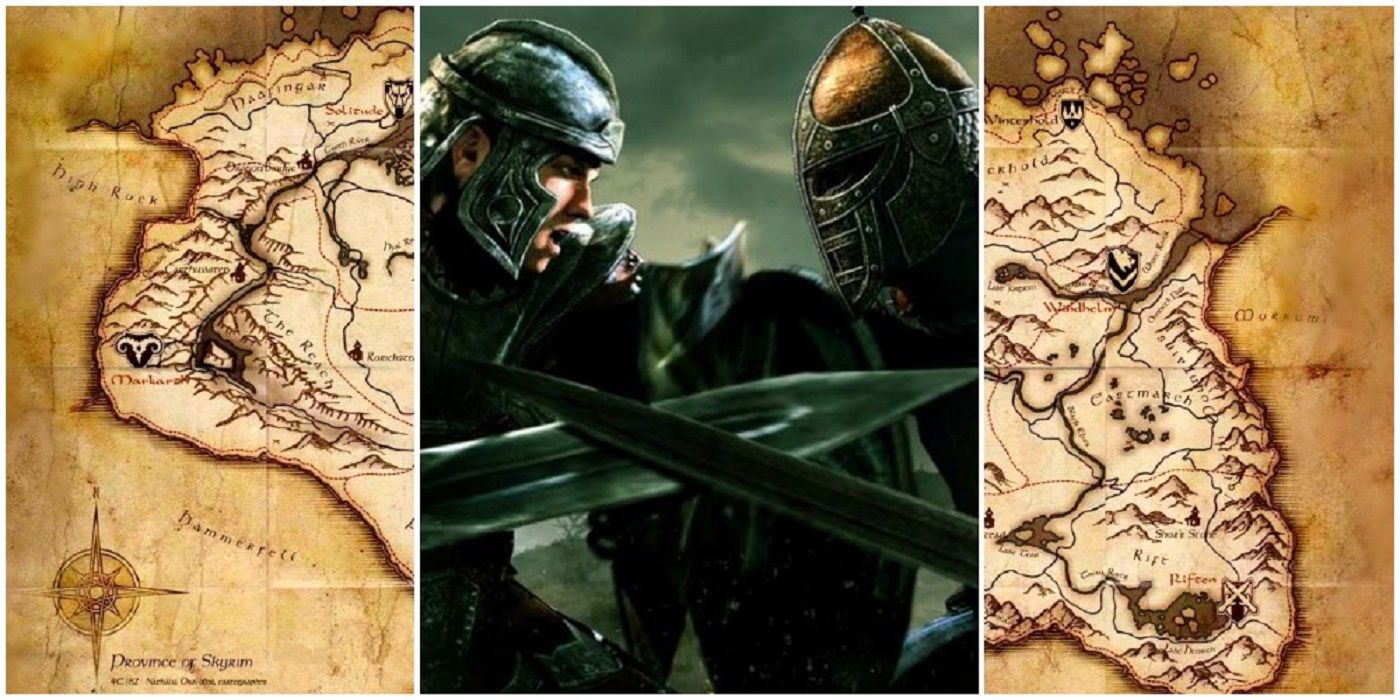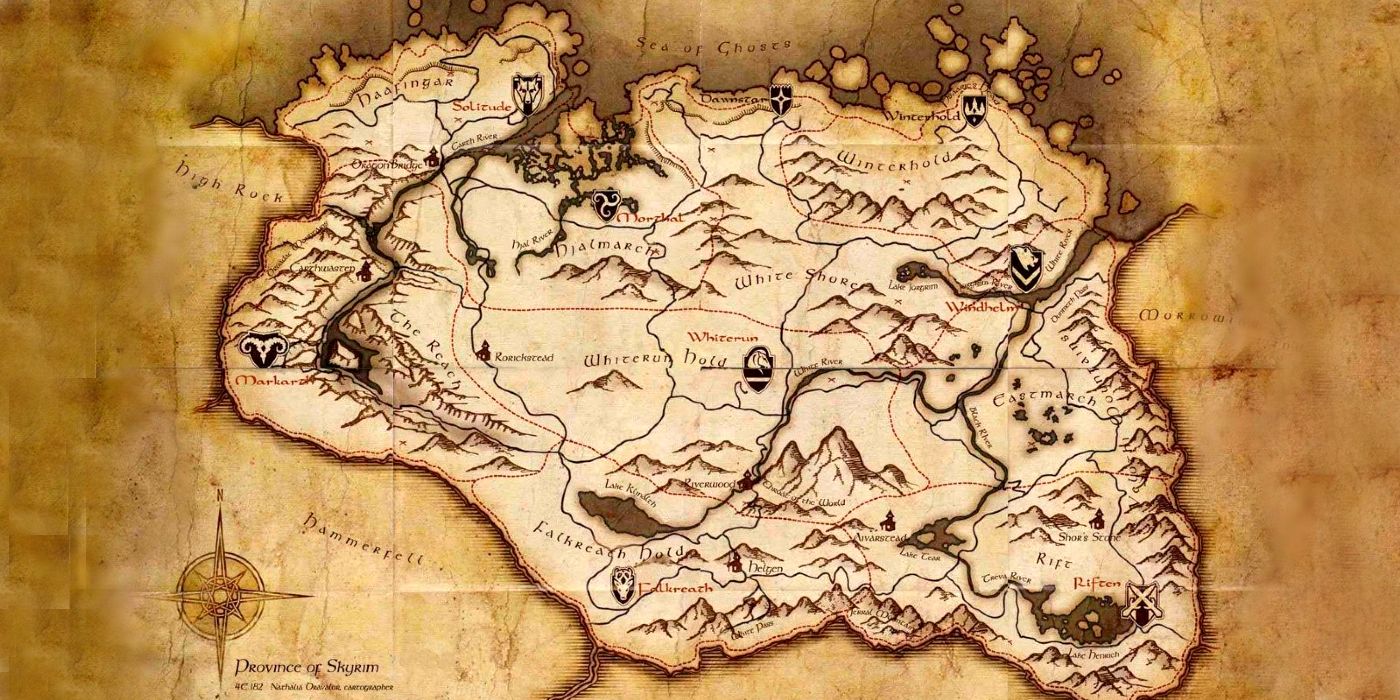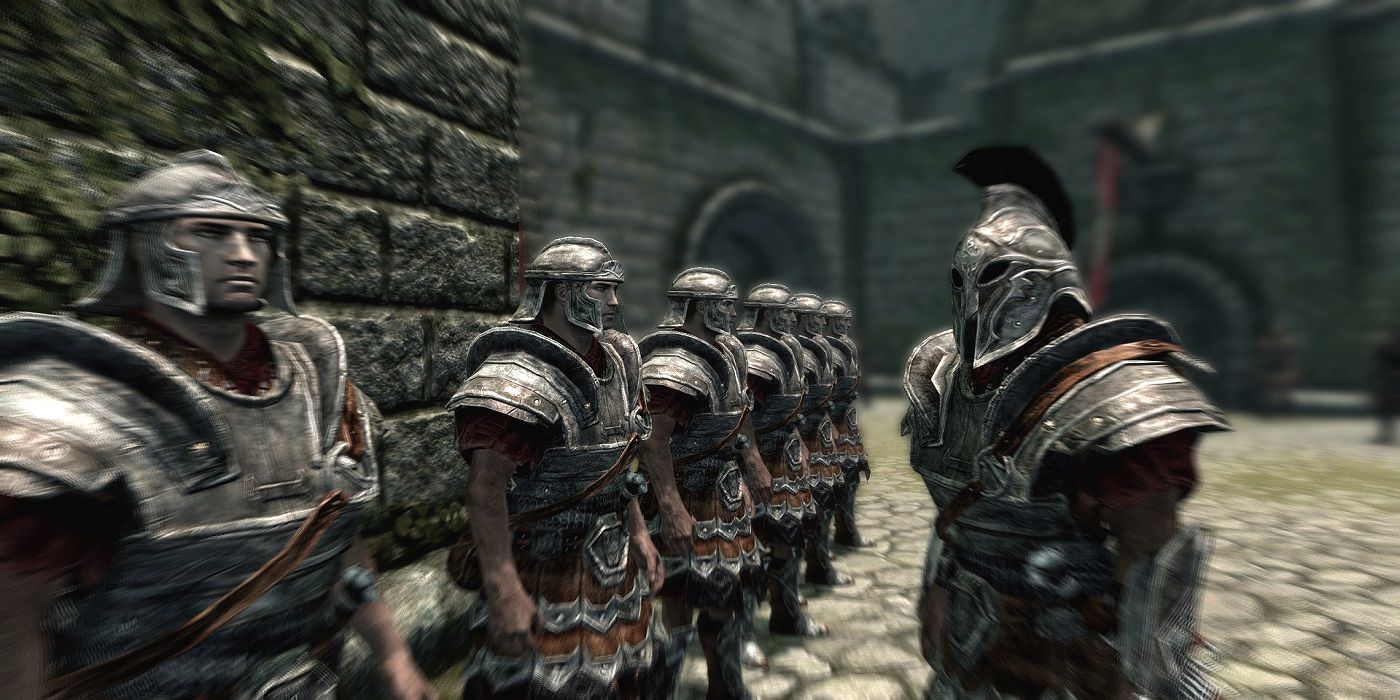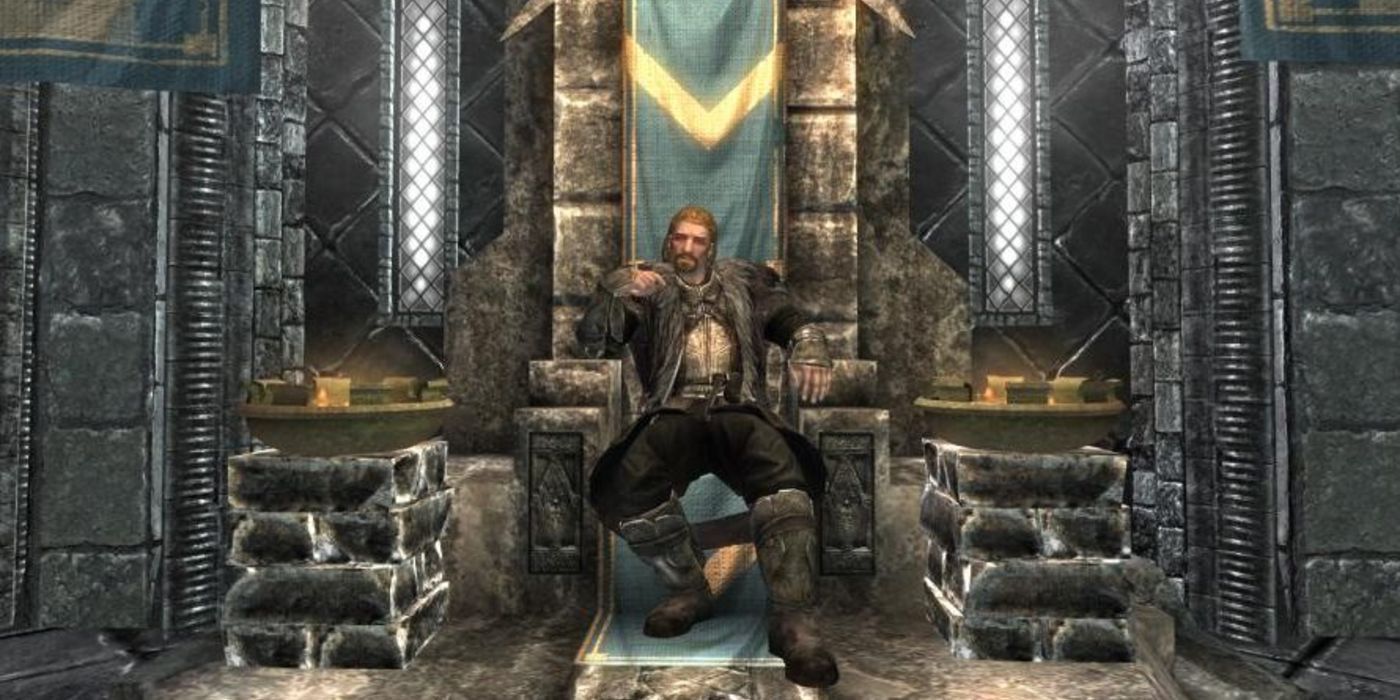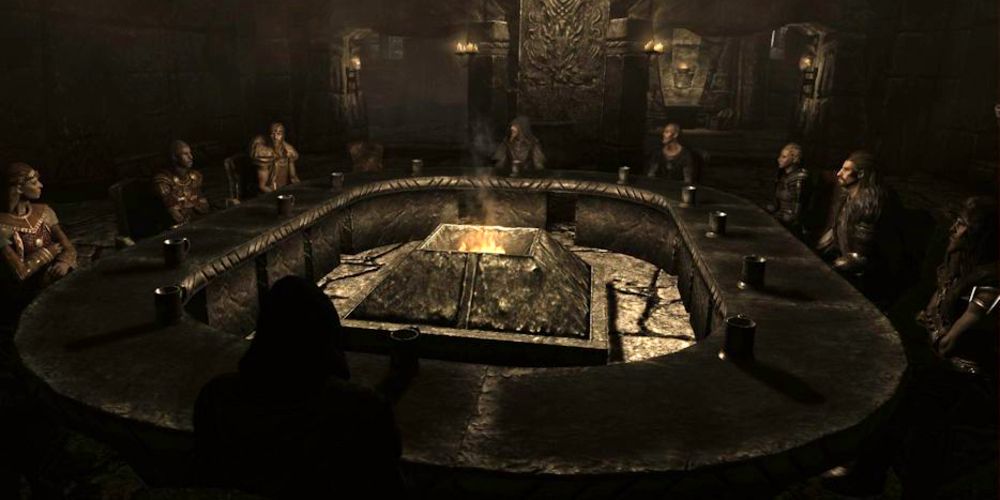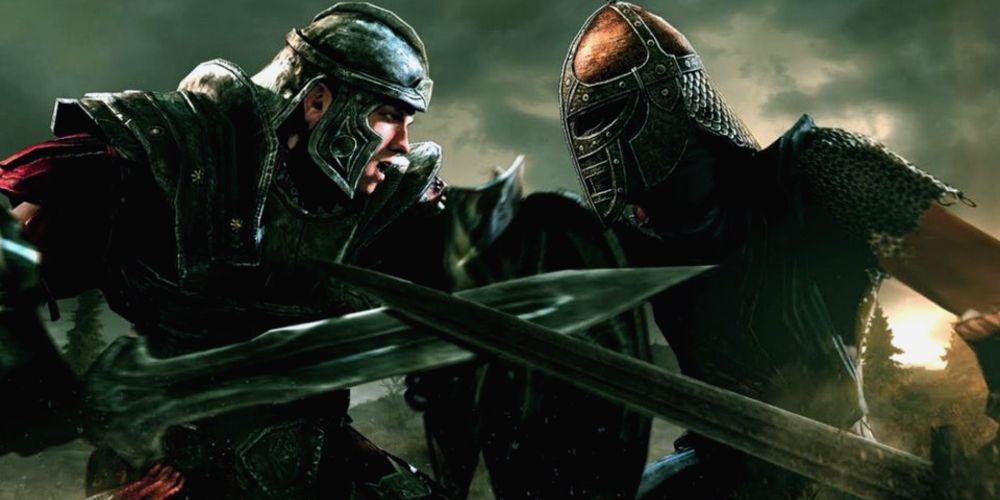Fans still know little about the upcoming sixth installment in the Elder Scrolls franchise. Most likely, it will take place partially in Hammerfell, but we don't know anything about its plot or place in the timeline. Yet, speculation still abounds as to the game's story—including how the events of Skyrim potentially impacted the next game.
The myriad choices and possible outcomes in Skyrim mean that come Elder Scrolls 6, the world could look very different depending on what endings and quest results the developers deem canon. This is especially true for the Civil War storyline, which holds potentially massive implications for Tamriel's future. Here are just a few of the ways that conflict could have canonically ended, and what they might mean for the next installment.
5 Skyrim's Secession From The Empire
One obvious potential outcome is that Ulfric got what he wanted: Skyrim's freedom and independence. This would mean a return to Skyrim's old ways, including the reinstatement of Talos worship. However, for any outsiders—especially elves—remaining in Skyrim, this may mean a dark turn. Racial tensions throughout the land are high during the war, and can only get worse for Dunmer, Imperials, and other non-Nords following a Stormcloak victory.
Should a Stormcloak victory be canon, Elder Scrolls 6 will likely see Ulfric or one of his descendants as Skyrim's High King. The backdrop of the upcoming game may include Civil War refugees, non-Nords who fled Skyrim in the face of Ulfric's regime. A liberated Skyrim also holds implications for the Aldmeri Dominion. They may hold less power if Skyrim is no longer bound by the White-Gold Concordat. Conversely, Skyrim's secession may weaken both itself and the Empire, allowing the Dominion to strengthen its grip even further.
4 Stormcloak Rebellion Quelled
Another clear possibility lies with the other side's victory. This would mean Skyrim's reintegration into the Empire, and adherence to its laws. Dissenters would still exist, but in small numbers, and likely isolated in Skyrim itself. The position of High Queen would likely fall to Elisif, an Empire-approved ruler. The rebellion may amount to nothing more than a historical footnote.
If this proves to be the canon result, players can expect limited mention of the Civil War in Elder Scrolls 6. The game isn't set in Skyrim, and may take place many years after the conflict's end. Though memories of the violence may still be present in survivors and refugees, this result will see the Empire returned to its usual state of affairs. However, if the game takes place soon after Skyrim, parts of Tamriel may still suffer the aftermath.
3 Ulfric's Martyrdom
At the end of the Civil War if the Dragonborn sides with the Empire, General Tullius expresses concerns over Ulfric's death: "I hope we haven't just created a martyr." One possible timeline is that the Empire initially wins Skyrim's civil war, but in killing Ulfric Stormcloak, ultimately spurs his followers on. After all, the rebellion was nearly ended in Skyrim's opening cutscene, only to come back stronger. It's possible that the rebellion continues after the Imperial army "won" the in-game questline.
This scenario contains potential for more bloodshed and damage than Ulfric simply leading his followers to victory. If the Stormcloaks win their war this way, they inherit a broken and leaderless nation. Either a new leader will emerge, or they will fall to infighting and ultimately disintegrate. This leaves room for the Aldmeri Dominion to move on Skyrim, as they hoped the civil war would weaken them.
2 Peace Treaty
Some Skyrim players choose not to bother with the Civil War questline at all, creating a world in which there is no clear winner. By the same token, even though Skyrim's war can be "won" during the course of the game, there's no guarantee that the conflict won't continue. Yet, the war may reach a point where continued violence becomes unacceptable. The conflict may eventually be resolved through peace negotiations.
With devout Nords on the rebels' side, any negotiation would have to include provisions for the free worship of Talos. This perhaps has the greatest implications for Elder Scrolls 6, as any form of Talos worship is a lightning rod for the Aldmeri Dominion. Such activities in fact violate a different peace treaty, the White-Gold Concordat, between the Empire and the Dominion. This may motivate the Thalmor to acts of outright aggression, even if peace between Skyrim and the Empire is achieved.
1 Stalemate
Another possibility suggests that, again, nobody truly wins—however, in this case, peace may be unreachable. With Skyrim's limited resources, the war can't last forever. Furthermore, proud and stubborn Nords may prove unwilling to yield in peace negotiations. It is possible that after the events of Skyrim, the two sides reach an impasse, with no clear victory.
What this means for The Elder Scrolls 6 depends on when the game takes place. A few years later, the Stormcloaks and Imperials may be engaged in a standoff or war of attrition. Several decades beyond, the rebellion may eventually wear itself out. The land may return to status quo, but not without damage. Both Skyrim and the Empire will be weakened to a dangerous degree. This leaves them vulnerable to manipulation or aggression from the Thalmor—and may mean a rise in power for them in Elder Scrolls 6.

